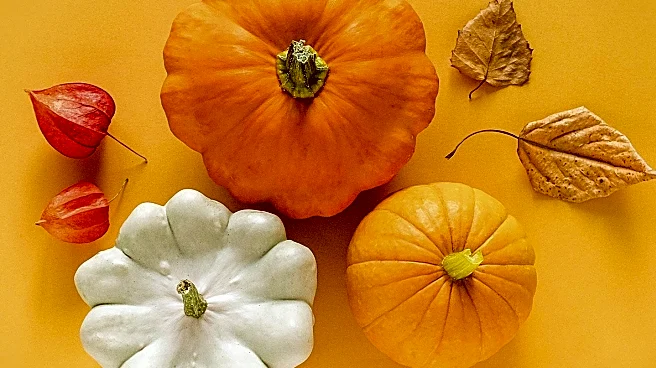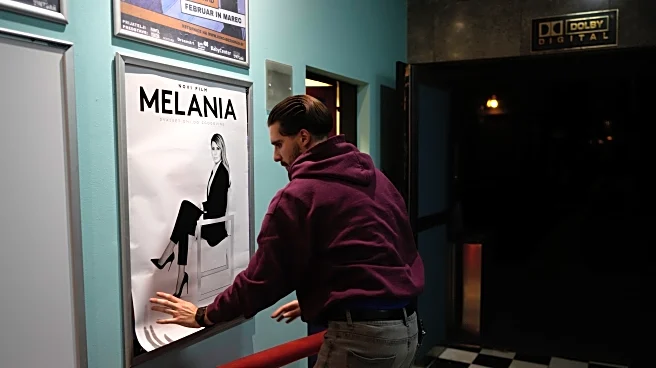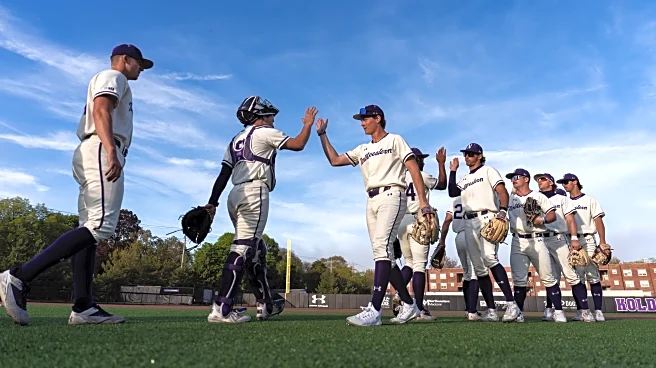What's Happening?
Friendsgiving, a term coined to describe a Thanksgiving-like celebration with friends rather than family, has become increasingly popular in the United States. The concept involves gathering close to the date of Thanksgiving, often featuring traditional dishes served potluck-style. The term 'Friendsgiving' was first tracked by Merriam-Webster in 2007 and gained cultural traction through media and advertising campaigns. By 2020, it was officially added to the dictionary. The holiday has inspired various hosting guides and even attracted participation from notable figures, including a sitting president in 2023. While there are no official statistics, surveys suggest that up to 20% of Americans may celebrate Friendsgiving. The holiday is seen as a way
to enjoy the communal aspects of Thanksgiving without the familial obligations, and it often appeals to younger generations who may be hosting for the first time.
Why It's Important?
Friendsgiving reflects a shift in how Americans approach traditional holidays, emphasizing flexibility and inclusivity. It allows individuals to celebrate with chosen family, which can be particularly meaningful for those who are geographically distant from relatives or prefer a less formal gathering. The rise of Friendsgiving also highlights changing social dynamics, where friendship networks play a significant role in personal support systems. This trend could influence the hospitality industry, as restaurants and retailers may offer special deals or products tailored to Friendsgiving celebrations. Additionally, the holiday's popularity underscores the cultural impact of language and media in shaping social practices, as the term itself has helped to formalize and spread the concept.
What's Next?
As Friendsgiving continues to gain traction, it may lead to more commercial opportunities, such as themed products and services. Restaurants and food brands might capitalize on this trend by offering Friendsgiving-specific promotions or menu items. Social media platforms could see increased engagement as users share their Friendsgiving experiences, potentially influencing broader holiday marketing strategies. Furthermore, the concept may evolve to include more diverse cultural elements, reflecting the varied backgrounds of participants. This could lead to new traditions and recipes becoming part of the Friendsgiving experience, further enriching the holiday's appeal.
Beyond the Headlines
Friendsgiving's rise may have deeper implications for societal norms around family and community. It challenges traditional notions of holiday gatherings, suggesting that meaningful connections can be formed outside of familial ties. This shift could influence how future generations perceive and celebrate holidays, potentially leading to more inclusive and diverse celebrations. Additionally, Friendsgiving may encourage discussions about the importance of chosen family and the role of friendships in emotional well-being. As the holiday becomes more mainstream, it could also prompt conversations about the commercialization of personal relationships and the balance between tradition and innovation.















